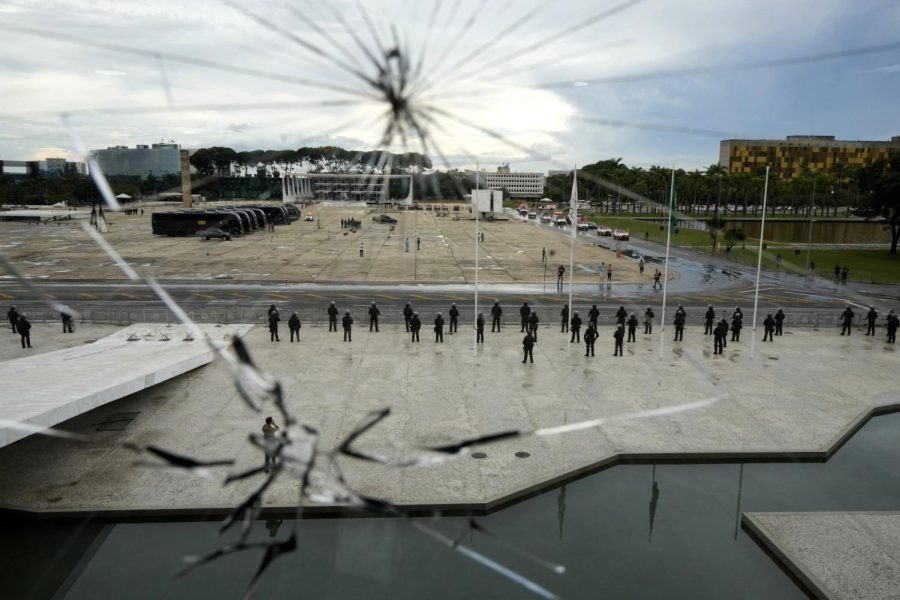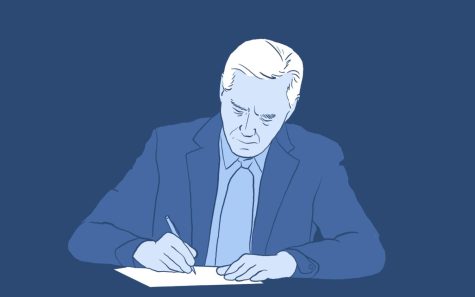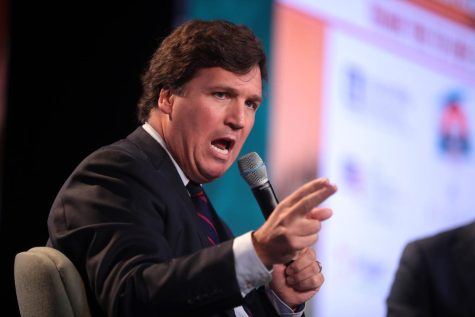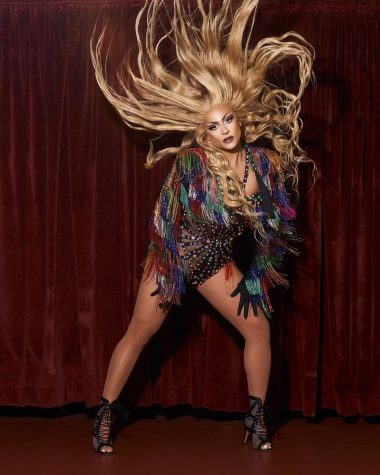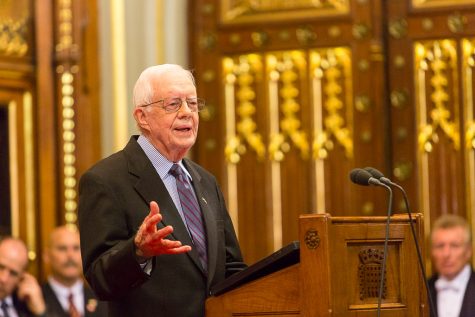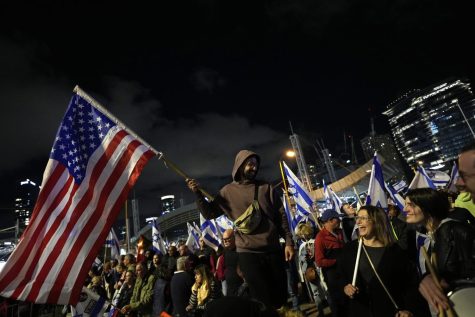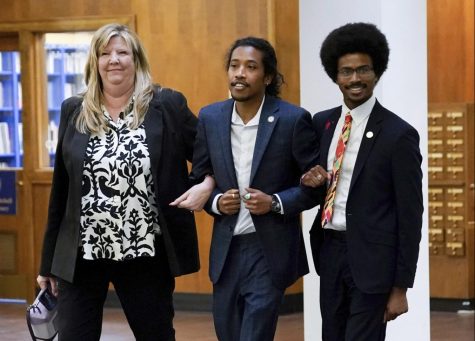Recognizing parallels between Brasilia and Capitol Hill: Is history repeating itself?
Eraldo Peres | Associated Press
Security forces stand guard following violent protests at the Brazilian Capitol building.
Amid persistent political turmoil in Brazil, thousands of Brazilian insurrectionists stormed the capital, Brasilia, on Jan. 8 in a protest of an alleged stolen election. With the Brazilian congress and supreme court being out of session in January, insurrectionists were met with minimal resistance. While the Brazilian riots were fueled by the distrust in the Latin American electoral process, the event bore a lot of resemblance to the Jan. 6, 2021 insurrection of the U.S. capital.
Succeeding Brazil’s presidential election in October, former right-wing president Jair Bolsonaro repeatedly suggested that the 2022 election was rigged. Over the course of the next 70 days following the election, several of Bolsonaro’s supporters camped out at Brazilian Army headquarters demanding a military coup in protest of the election results. After meeting no success, several of Bolsonaro’s supporters resorted to storming government buildings in Brasilia as an act of defiance in response to Brazil’s current president Luis Inacio Lula da Silva’s inauguration.
Similarly, the U.S. Capitol Hill riots of Jan. 6, 2021, led by the right-wing extremists in support of Donald Trump, held the same belief that the 2020 presidential election was rigged. Thousands of rioters surged past Capitol police as they besieged, vandalized and looted the Capitol Building. With so many similarities between the two uprisings, there has been persistent political rhetoric suggesting that history is repeating itself with the riots in Brazil, hence, posing the question if there is a significant correlation between the two.
“Trump and Bolsonaro share that they are birds of the same-colored feather because they are both authoritarians,” DePaul Latino politics professor Joe Tafoya said. “Authoritarians can’t lose and always blame other people for their problems, they appeal to the side of the public that wants rules and seeks to preserve hierarchies. Like Trump, Bolsonaro claimed there was widespread fraud and didn’t say he would welcome the outcome of the election.”
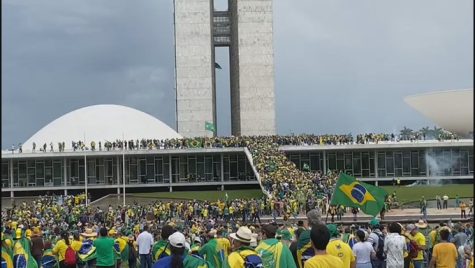
The political timelines leading up to the Brazilian insurrection and the U.S. Capitol Hill insurrection tell similar stories of extremist unrest.
“To some degree, these events arise from the same processes — a polarized election, narrow victory by the opposition, defeat of a right-wing president who was known to encourage conspiracy theories and violence,” said Rose Spalding, DePaul professor and interim director for the peace, justice and conflict studies program.
Both insurrections illuminate how politicians’ stigmatization of the electoral process continuously poses a threat to democracy amid the continuous hyperpolarization of the political parties. As Trump and Bolsonaro continued to fortify election fraud claims, the rioters established their beliefs on misperceptions of the political systems that both democracies are founded on.
This stigmatization of the electoral process is made evidently clear through the rioter’s reliance on social media. Social media sites such as Twitter have offered a platform for politicians and skeptical voters to reinforce conspiracy and partisan perspectives. It has also prompted the emergence of the extremist groups responsible for organizing the riots.
“In both countries you have the heavy dependence on social media for “news” and the tendency for people to exist in their information bubbles where false reports of a stolen election abound,” Spalding said.
“It facilitates the leadership coordinating people attending in a huge way,” DePaul political science professor Wayne Steger said. “The social media for a widespread protest is very powerful.”
There are, however, some notable differences between the Brasilia riots and the Capitol Hill riots. The most significant being that, unlike Trump with the Capitol Hill riots, rioters in Brasilia were not backed with the support of former president Bolsonaro.
“This event is different from Jan. 6 because Bolsonaro did not direct the mob,” Tafoya said. “He left the country to Florida just before his successor was inaugurated. In Brazil, there was mass delusion because supporters believed their actions would bring Bolsonaro back. I think he’s checked out.”
In response to the riots, Bolsonaro tweeted, “Peaceful demonstrations, in the form of the law, are part of democracy. However, depredations and invasions of public buildings as occurred today, as well as those practiced by the left in 2013 and 2017, escape the rule.”
After the incident, Brazilian President Silva signed an emergency decree that enforced the removal of the protest camps and over 1,500 rioters were detained throughout the ongoing investigation of the insurrection. Several other politicians such as President Biden and Mexican President Andrés Manuel López Obrador have joined Silva in expressing their disdain for the violent protests.


